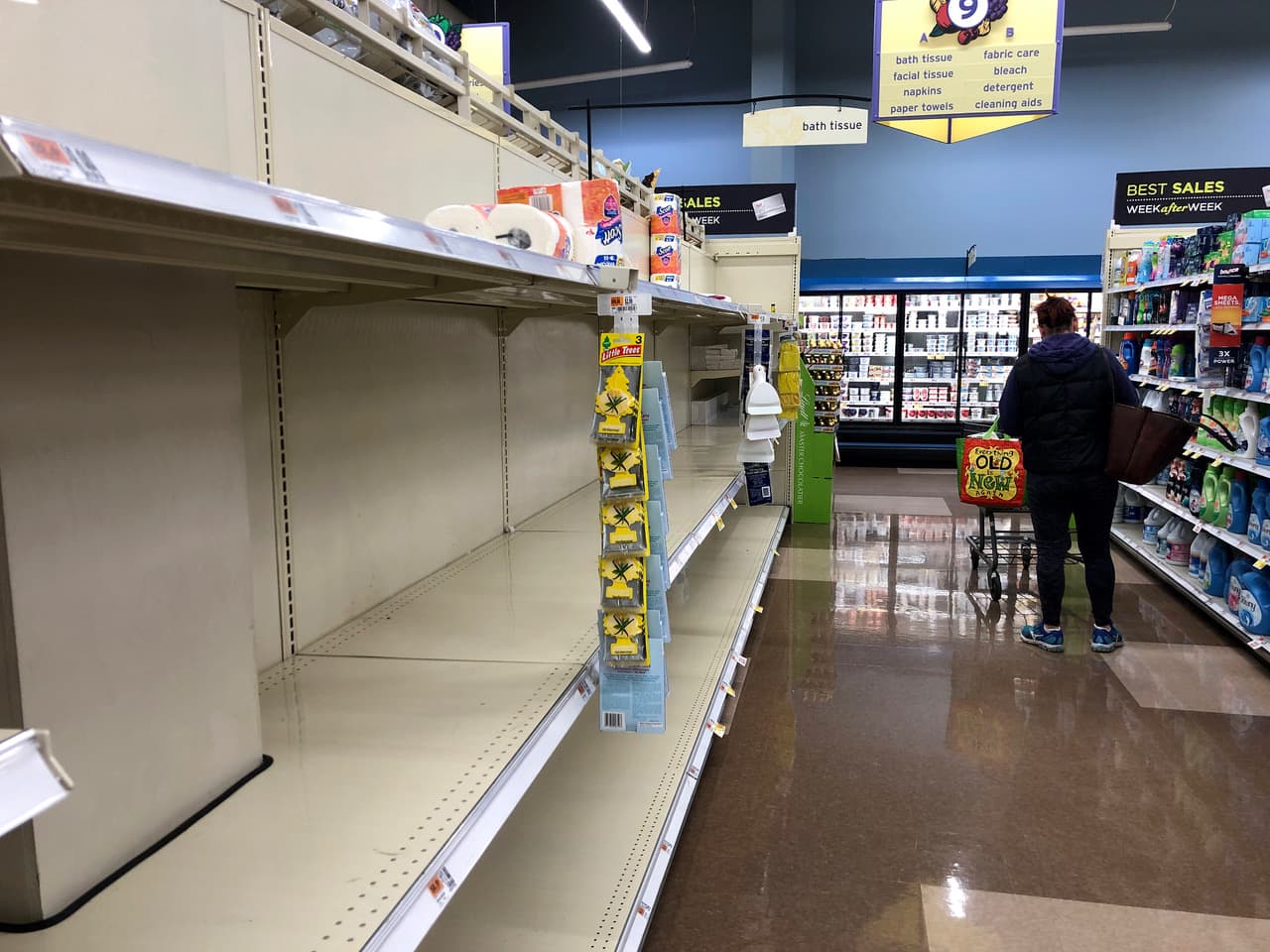Toilet paper shelves lay empty at a supermarket in Saugus, Massachusetts on March 13, 2020.
Joseph Prezioso | AFP | Getty Images
It’s not all in your mind. The growing panic over coronavirus is real, and fear is a rational response.
What’s not a foregone conclusion is your own reaction.
When markets tank, some people always want to flee to cash. When an illness threatens to spread to practically everyone you know, many people want to stock up — and it seems these two responses actually go hand in hand, according to Rick Kahler, a certified financial therapist and a certified financial planner.
“There’s absolutely a correlation between hoarding and selling out [of the market],” said Kahler, the founder of Kahler Financial Group in Rapid City, South Dakota. “They’re emotional responses.”
Anyone who feels very emotional about an event wants to take an action that will relieve the anxiety, Kahler says. Whether someone has stockpiled food and paper goods or sold equities, it will bring a feeling of relief.
The mistake, though, is in thinking you’ve made the absolute right decision.
More from Invest in You:
Nail your financial goals the way an Olympic medalist does
Millennial women are learning that investing won’t wait
Is social media dictating how you spend?
Brains still in beta-testing
Here’s the biology behind hoarding. The primitive part of our brain wants us to stay alive. We respond to cues in our environment — we decide if they’re risks or threats — and act on them.
The human brain hasn’t had an upgrade in about 150,000 years, says Dan Pallesen, chief of investor behavior at Keystone Wealth Partners in Chandler, Arizona. Yet we must cope with financial concepts and markets that are just about a few hundred years old. “It’s a really old system engaging in a very new world,” Pallesen said.
A key point to remember is that our brains are simultaneously complex and simple, with a primary goal of keeping ourselves alive. “Every day we do that is a successful day,” Pallesen said.
Events like the spread of the coronavirus, also known as COVID-19, propel us back to that safety mindset, Pallesen says, and the relentless news cycle makes many people conclude they need to hold onto everything and hunker down.
Fear is contagious
Shoppers buy toilet paper, food and water at a store, as people begin to panic buy and stockpile essentials from fear that supplies will be affected by the spread of the COVID-19, coronavirus outbreak across the country, in Los Angeles, California on February 29, 2020.
Mark Ralston | AFP | Getty Images
People take note of what other people are doing. “The fear is contagious, like bank runs in the beginning of the Depression,” Pallesen said.
Even if you’re not worried about running out of food, it may change your feelings about stocking up when you see people panic-shopping. “You don’t want to be the one knucklehead who doesn’t load up when you see everyone else doing it,” Pallesen said.
Take inventory of what you’re hoarding. “Having a few weeks’ worth of some canned goods for a worst-case scenario could be appropriate,” Pallesen said. Much more than that is probably unnecessary. Pallesen doesn’t believe people need a bunker or a year’s worth of food and cash.
The downside to panic investing
When it comes to steering people away from financial mistakes, like getting out of the market, Kahler says the same techniques come into play. “We teach people to separate the emotional [response] from the action,” he said.
People may not even realize the extent of their anxiety. Over-supplying and fleeing the market are both attempts to calm their fears, Kahler says, and it can bring immediate relief: “I got out! At least I’m keeping the money I had.”
That pit in your stomach
People’s fear of loss, of making a mistake, is intense, Pallesen says. “When we think about the feeling of not having enough, we can feel actual physical pain,” he said.
Instead of denying your feelings or rushing to a solution that you think will alleviate the fear, acknowledge the pain as real.
Next, says Kahler, examine your feelings and see what you can do that won’t turn your fear into a hurtful action. Selling off your assets can hurt you. Stockpiling certain items, such as masks, could hurt someone else.
Talk it out
“Having someone to confide in can help you feel more plugged back in and rational,” Pallesen said.
“Reach out to someone who is not going to reinforce your panic,” Kahler said, like a financial therapist or advisor.
Kahler recommends sitting with your feelings instead of medicating or trying to push them away. “See if you still need to take the action after just talking,” he said. “Write down the things you are anxious about and see if there is a simple solution.”
